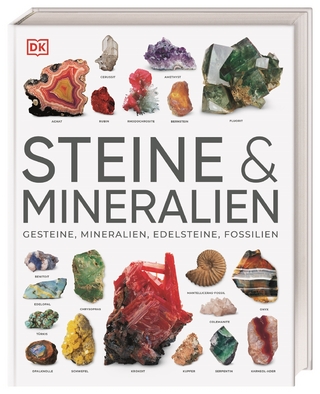
Survival Strategies
Cooperation and Conflict in Animal Societies
Seiten
1998
Harvard University Press (Verlag)
978-0-674-17055-1 (ISBN)
Harvard University Press (Verlag)
978-0-674-17055-1 (ISBN)
- Titel ist leider vergriffen;
keine Neuauflage - Artikel merken
Tasmanian hens have two husbands and cellular slime molds commit suicide. Why creatures behave in such ways is explained in this account of the evolutionary foundations of animal social behaviour. Strategies of cooperation and conflict from lions to wasps are explored.
Tasmanian hens have two husbands, cellular slime molds commit suicide, vampire bats will share food with hungry fellow bats and hanuman langurs commit infanticide. Why creatures great and small behave in such ways is explained in this account of the evolutionary foundations of animal social behaviour. Only in recent years have biologists and ethologists begun to apply evolutionary thinking to the study of animal societies. This book presents the some of these findings, with insights into the myriad strategies that animals have developed to perpetuate their kind. Raghavendra Gadagkar explores the strategies of cooperation and conflict adopted by animals from the lordly lion to the primitive wasp worker as they choose mates, raise their young, communicate with others, and establish the division of labour necessary to feed and protect the group and safeguard their territory.
Whether focusing on the birds or the bees, this book offers both descriptions and explanations of many different behaviours encountered in the animal world: why a ground squirrel will sound an alarm - even risk its own safety - to warn fellow squirrels of impending danger; why weaver ant larvae donate silk for nest building; why house mice raise their offspring in a communal nursery; and how animals can recognize the relatives they want to favour or avoid. Illustrated with both photographs and explanatory diagrams, this tour of the social world of animals will inform readers curious about the motivations behind the range of activity in the animal kingdom.
Tasmanian hens have two husbands, cellular slime molds commit suicide, vampire bats will share food with hungry fellow bats and hanuman langurs commit infanticide. Why creatures great and small behave in such ways is explained in this account of the evolutionary foundations of animal social behaviour. Only in recent years have biologists and ethologists begun to apply evolutionary thinking to the study of animal societies. This book presents the some of these findings, with insights into the myriad strategies that animals have developed to perpetuate their kind. Raghavendra Gadagkar explores the strategies of cooperation and conflict adopted by animals from the lordly lion to the primitive wasp worker as they choose mates, raise their young, communicate with others, and establish the division of labour necessary to feed and protect the group and safeguard their territory.
Whether focusing on the birds or the bees, this book offers both descriptions and explanations of many different behaviours encountered in the animal world: why a ground squirrel will sound an alarm - even risk its own safety - to warn fellow squirrels of impending danger; why weaver ant larvae donate silk for nest building; why house mice raise their offspring in a communal nursery; and how animals can recognize the relatives they want to favour or avoid. Illustrated with both photographs and explanatory diagrams, this tour of the social world of animals will inform readers curious about the motivations behind the range of activity in the animal kingdom.
| Erscheint lt. Verlag | 30.1.1998 |
|---|---|
| Zusatzinfo | 18 line illustrations, 20 halftones, 3 tables |
| Verlagsort | Cambridge, Mass |
| Sprache | englisch |
| Maße | 160 x 215 mm |
| Gewicht | 420 g |
| Themenwelt | Sachbuch/Ratgeber ► Natur / Technik ► Natur / Ökologie |
| Naturwissenschaften ► Biologie ► Evolution | |
| Naturwissenschaften ► Biologie ► Zoologie | |
| ISBN-10 | 0-674-17055-5 / 0674170555 |
| ISBN-13 | 978-0-674-17055-1 / 9780674170551 |
| Zustand | Neuware |
| Haben Sie eine Frage zum Produkt? |
Mehr entdecken
aus dem Bereich
aus dem Bereich
über 500 faszinierende Gesteine, Minerale, Edelsteine und Fossilien
Buch | Hardcover (2023)
DK Verlag Dorling Kindersley
CHF 39,90
Familien und Gattungen einheimischer Pflanzen
Buch | Hardcover (2022)
Haupt Verlag
CHF 67,95
vollständig aktualisierte Neuausgabe mit den zusätzlichen …
Buch | Softcover (2023)
Westend (Verlag)
CHF 30,80


